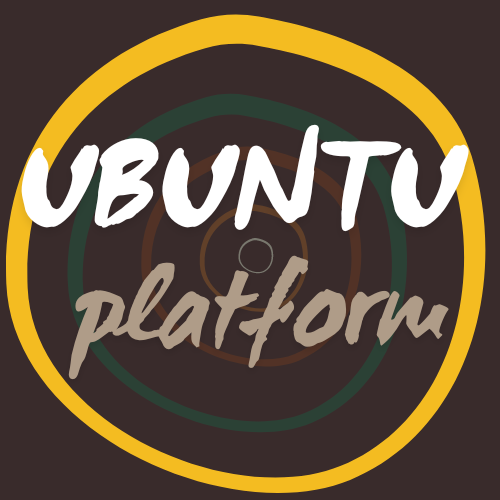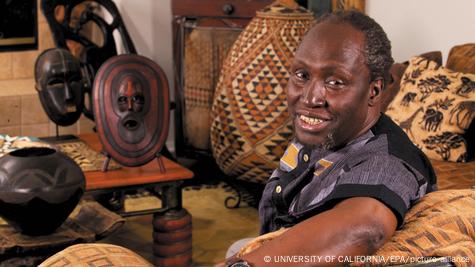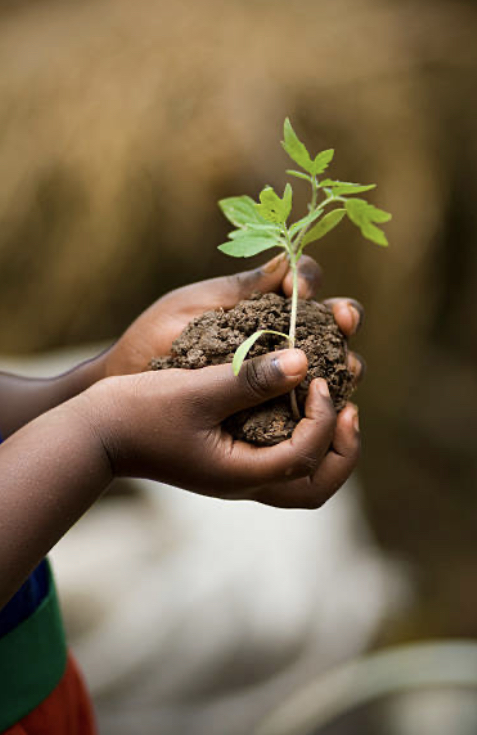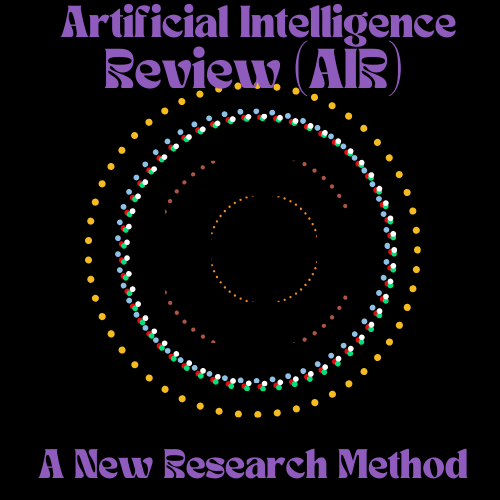YOU ARE HERE
»
Home
»
All Posts Basket
»
UBUNTU VALUES AND ETHICS IN FUNDRAISING, RESOURCE MOBILISATION AND DONOR ENGAGEMENT
UBUNTU VALUES AND ETHICS IN FUNDRAISING, RESOURCE MOBILISATION AND DONOR ENGAGEMENT
From welfarist and charitable to developmental and decolonial methods

Cite as: Africa Social Work Network (2022). Ubuntu values and ethics in fundraising, resource mobilisation and donor engagement: From welfarist and charitable to developmental and decolonial methods. Put web link here
Ubuntu is Africa’s philosophy or view of the world. Ubuntu shapes how we define and view the individual, the family, the community, society, environment and spirituality. Ubuntu is found in all communities of Black people in Africa, and it has been part of them since time immemorial. Ubuntu is the foundation of African values (what is important) and ethics (what is right or wrong). A list of Ubuntu values and ethics is given at the end of this article.
This piece addresses Ubuntu values and ethics that fundraisers should be aware of and embody when they seek donor funds, mobilise resources or engage donors through social media, email campaigns, newsletters, conferences, talks or exhibitions. For each point, we provide feasible alternatives that are Ubuntu inspired.
In discussing the values and ethics, we will use the African developmentalist theory, theories of welfarism and decolonial theory. As a fundraising or charity worker, it is important to understand the concepts of development, welfare and decolonising. Development is about empowering people to be able to meet their needs, especially medium and long-term needs of families, communities and society. Welfare means addressing immediate needs, usually of individuals by providing handouts. Welfarist approaches have disadvantages, they promote dependence and make people look at the donor as a saviour. This is called donor syndrome or when the donor is a white person, it is called White Saviour Mentality (WSM). The idea of enabling perpetual dependence is colonial in nature, hence the need for decolonisation. What is colonial goes against or ignores the aspirations of the people. In welfarism and colonialism, we talk of dependence, recipients and beneficiaries, in developmentalism we talk of empowerment and participants.
In the following sections, we present 12 principles of fundraising that are inspired by Ubuntu values and ethics.
HOPE NOT PESSIMISM
When you are fundraising, you should not think and act as if families and communities are apathetic, are not helping themselves and are basically useless. No one, no family and no community is useless.
REMEMBER PEOPLE’S HISTORY
While the present situation of people is important to paint a good picture of the situation they are in, their history is also important. Some histories have disadvantaged people in several ways. For example, colonisation resulted in landless and people being moved into colonial reserves not suitable for their productive activities. Most of the benefits of colonisation went to the countries that are developed now. So be truthful, do not end at just saying people are poor because of their governments. Be more critical. The ultimate aspiration for people who were dispossessed is to get their land back not handouts.
SUPPORT LOCAL PRODUCTION AND FAIR TRADING
Fair trading – At times people are growing cotton, sugarcane, tobacco, beef and coffee beans but prices on the international market are pathetic. This leaves the farmer very poor. It might be useful, no, instead ask for donations, Africa asks for better prices. It is even more developmental to construct dams, build dip tanks and roads but most donors do not want this to happen, they want Africans to keep stretching their hands for handout.
Second hand clothing charity – this is a moral problem. People collect used clothes and donate or sell them to Africa. Along the years, this has killed local weaving, sewing, farming and processing. Most companies have closed because of this hazard. If you are involved in this social enterprise, rethink. You can justify by saying people have no clothing, but that is a lie, even if it was true, your strategy is welfarist, short term. Support long term developmental strategies. Another challenge is that clothes convey messages, ideologies and beliefs through pictures, colours, designs, symbols and pictures. In most African communities long untight clothing is preferable, but through donations, people are being exposed to tight, skinny, short and other types of obscene clothing. In Africa lesbian and gay rights are not a priority, but you find bales of clothing packed with t-shirts with gay and lesbian rights messages and colors, these will be new and send to Africa not for humanitarianism but to promote the ideas and beliefs of the donors.
KEEP RELIGION, CULTURE AND POLITICAL PERSUASION AWAY FROM PHILANTHROPY
Starting with those who are religion oriented, religious charity has a hidden agenda, that of converting people. This is a big mistake that should never find its way in your work. It is a colonial tactic that has no place in modern day society. Religion is directly connected with people’s culture, so for example, is a family is converted to Islam because of charity, they are basically acculturating to Arabic. If they are converted to Catholicism, they are basically acculturating to European culture. Lastly, political persuasion can be divisive, and people can easily adopt your political persuasion is you have something to give them. This is akin to vote buying. For all three, religion, culture and politics, the changes of causing disharmony in families and communities and in the country are high. For a century now, Christianity and Islam, all foreign religions, have caused disharmony, violence and conflict in families, communities, countries and regions. Converting people, emanates from a colonial and anthropological mindset that said Africans were too weak to have their own religious beliefs and cultural values and practices. This mindset was false unfortunately, other people still perpetuate it today.
VALUE AFRICAN LITERATURE AND KNOWLEDGE
Book charity work – If you are donating books and other forms of literature, then you need to think twice. There are several reasons why we think this is wrong: (1) Every book, whether it is a textbook, novel or a guide, is written from an ideological or philosophical standpoint. All books published by non-Africans carry cultures of the people writing or publishing them. Some of these cultures are damaging to the children and readers of Africa. (2) Some of the messages, practices and illustrations in the books promote colonisation, and white supremacy. We can’t be talking about decolonisation, when we are importing colonisation! We can’t be talking about Afrocentrism when we are bringing Eurocentrism into Africa. (3) By importing books your organisation is killing local writing and publishing talent. Why not support the local writers and publishers to create content – textbooks, novels etc. (4) Why not write books instead of collecting expired books written by non-Africans? Some well-educated Africans support donation of literature by making donations or collecting books, have you ever thought of putting the energy in writing the books yourself? How wonderful would that be – you create the most appropriate illustrations for Africa or hire African illustrators, you support local editors and publishers, marketers and retailers. Your readers will be empowered more than reading a book of illustrations, stories and dreams of white people.
DO NOT BE ALARMIST AND DO NOT FALSIFY EVIDENCE
What statistics and evidence are you using to push your fundraising campaign? How reliable is your evidence? Other fundraisers act so unethically, quoting very weak evidence to prove that this is what is happening in Africa. Some of their statistics make the so called donors to be very afraid, and to overshoot their sympathy. But is this what we want? Let us not be alarmist. A study of 100 people where 10 of them have not access to water, cannot be generalised to the whole country or even district. Still on this point, your sources do matter, be wary of picking evidence from online sources and also be wary of used evidence created or published outside Africa to describe the situation in Africa.
GET INFORMED CONSENT
If you are using photos be responsible, get consent before sharing someone’s photo even though they are poor or illiterate. To get consent, tell them first that they do not have to give you consent, and clearly how the photo will be used and how many times. Is it going to be on social media and what controls will be put in place to ensure that the photo is not permanently placed there or is not sold by digital photo sellers. Avoid taking sorrowful images to drive a point home.
KEEP CHILDREN IN THEIR BIOLOGICAL FAMILIES IN THEIR COMMUNITY
| What to do | Relevant Ubuntu value | Relevant Ubuntu ethic |
| Keep children in their biological families in their community | Familyhood (ukama) Communityhood (ujamaa) | It is wrong to take children from their biological parents or relatives and give them to people they have no blood relationship with. |
If you are in the social enterprise of child adoption, you are in a morally hazardous activity. Africans believe in continuity of the family and community, not breakdown. By adopting a child outside Africa, you are not building but destroying this value. Instead, support families and communities in a developmental way.
CHARITY BEGINS AT HOME
If you are donating to Black people in Africa, yet in your country you have other people who are struggling or are in poverty, then rethink your strategy. True altruism requires that you do well near you first. Black people are happy to see all Black people happy wherever they are. We are brothers and sisters.
PROMOTE NOT DEMONISE YOUR CULTURE
No amount of donations or donor friendliness should lead you to denounce what you are. Demonising your culture, environment, upbringing or culture because you want donations is not only pathetic but cruel because you hurt others.
STRENGTHEN RESILIENCE
| What to do | Relevant Ubuntu ethic |
| Strengthen resilience | Shosholoza |
Aid has killed resilience, innovation and hope. In some villages, they are always waiting for the donor. The values of ujamaa or working together to solve community challenges are disappearing as a result of donations. If this was your community, would you be happy? Aid erodes social capital, meaning families, communities, enterprises, institutions and nations reduce their reliance on each other, in short, they see less value in working with each other. Yet, this Africa ethic of working together, ujamaa, has sustained Africa communities since time immemorial. Donors, instead of family and neighbours, are valued much. African families, communities and governments now ground their social security on donations.
ENRICH PEOPLE IN THEIR FAMILIES AND COMMUNITIES, DO NOT UPROOT
An example is when children or young people get scholarships in other countries and they travel to study but when they finish, they are not made to return home. They are then uprooted to work in the scholarship country. This can be said to be a personal decision but in reality uprooting is caused by the way scholarships are designed. The long term impact is that families, communities, countries and source continents are left without talent. Often the brightest are taken away.
UBUNTU VALUES
Despite colonialism, westernisation and migration, Africans have common values. These are:
- Relations (ukama) – valuing parents, blood relations and tribal family; social, cultural, spiritual, economic and political relations
- Culture (umuco/isiko) – valuing the way we do things (food, language, dress, knowledge, ethics, beliefs etc)
- Indigeneity (wazawa) – valuing being black Africans and being people of the African continent
- Wholism/holistic (mzima/phelele) – valuing connection between people, their past and future, environment and spirituality
- Justice and Freedom (uhuru) – valuing being free and independent from colonisation and injustice; valuing just laws and practices in relation to land, the environment, relations, economics, politics etc
- Responsibility (mutoro) – valuing that we have a responsibility towards each other and future generations and a responsibility to our environment and responsibility to maintain relations (ukama)
- Community/collectivity (ujamaa) – valuing working together
- Respect (girmamawa) – valuing humanity, treating a person as a person, elders, parents, land, ancestors and spirituality
UBUNTU ETHICS
Below are some Ubuntu ethics:
- Girmamawa – the ethic of respect
- Itorero – good members of society, and a strong sense of cultural values and leadership skills. The ethic is to respect our cultures
- Kagisano – good neighbourliness. The ethic is to promote harmony
- Kuumba – creativity. The ethic is not to imitate
- Musha – permanent home in ancestral lands. The ethic is to protect and maintain permanent homes
- Sankofa – look back to inform the future.
- Shosholoza – resilience. The ethic is remaining strong despite adversity
- Simunye – strengths in numbers, we are one. The ethic is promote cooperation and collectivism
- Ubunyarwanda – nationhood. There are many ethics including promotIng peace
- Uhuru – liberty/independence/freedom. The ethic is liberate and protect African liberation
- Ujamaa – familyhood or communityhood. The ethic is promote cooperation and collectivism
- Ujima – collective responsibility. The ethic is to look after one another
- Ukama / Harambee – familyhood, valuing blood relations.
- Umachobane – sustainability. The ethic is to do programs that are sustainable.
- Umhuri – familyhood, valuing blood relations. The ethic is protect families and marriages
- Umoja – unity, peace and harmony. The ethic is to promote oneness.
- Umuganda – service to others. The ethic is help others in need or reciprocity
- Unyanzvi – professionalism. The ethic is to act professionally
- Upenyu – valuing life. The ethic is do not harm or kill
- Urithi / Nhaka – inheritance. The ethic is to protect inheritance
- Uroho – spiritual connectedness. The ethic is to be holistic
- Ururami / Ubulungiswa / Ubutabera – justice. The ethic is for people to be just
- Ushavi – workmanship, enterprising . The ethic is hardworking
- Utungamiri – leadership. The ethic is people centered leadership
Our intention in publishing this article is to give an opportunity to people involved in fundraising and charity to pause a moment and consider African values and ethics in the work they do. The tendency is, which is wrong of course, always to consider western ethics. On face value, one would think that all aid resonates with the value of the social work profession. It doesn’t. If it is not sustainable, ethical, then it surely does not. It can be harmful socially, culturally, economically, psychologically or otherwise. Emergency aid could be very useful, but in other cases it comes with strings attached, and these can be harmful. For example, some countries have been made to change their culture, views or even beliefs because of aid. Social work does not promote this.
In social work, aid is viewed more broadly and exists at all levels of society, micro, meso and macro. More broadly help is, assistance, gift or relief provided by a family, community, organisation (donor, giver or aider) or country to another family, community, organisation or country (receiver or aidee) in the form of money (e.g. cash or grant), food, clothing, water, houses, energy, medicines, body organs (e.g. kidneys or sperms) equipment, books, toiletries, jobs (allowing people from another country to work in another), labour (e.g. experts like researchers, doctors and engineers or general like drivers), security personnel, arms, jobs, scholarships, adoption home, foster home and subsidies (e.g. cheap loans or reduced tax). Aid can be driven by humanitarian or voluntary altruism or aimed at some economic, social, cultural, diplomatic and political benefits in return. International, foreign or overseas aid involve a giver and receiver in different continents. It can be given to address an emergency situation (short-term), for welfare (medium-term) or for development purposes (long-term).
Whether viewed from the micro, meso or macro level, the impact of aid is the same. It is a social work strategy or welfare policy laden with challenges, it is problematic. Development is a better alternative which promotes sustainability, dignity and social capital; it is grounded in people’s culture, environment and aspirations.
Happy ethical and Ubuntu driven fundraising
Use the form below to subscibe to Owia Bulletin.
Discover more from Africa Social Work & Development Network | Mtandao waKazi zaJamii naMaendeleo waAfrika
Subscribe to get the latest posts sent to your email.










You must be logged in to post a comment.